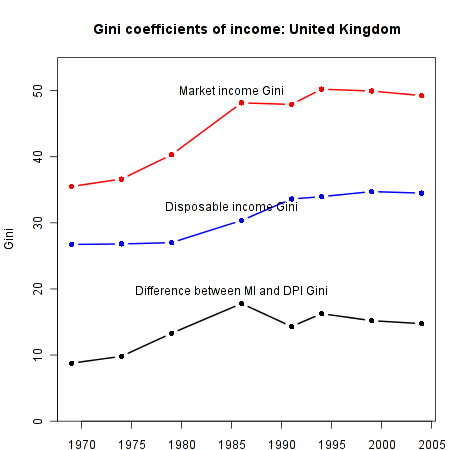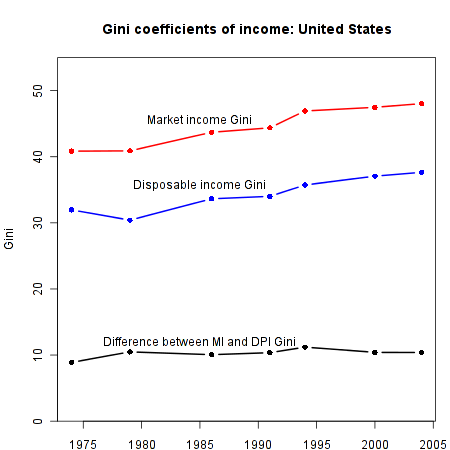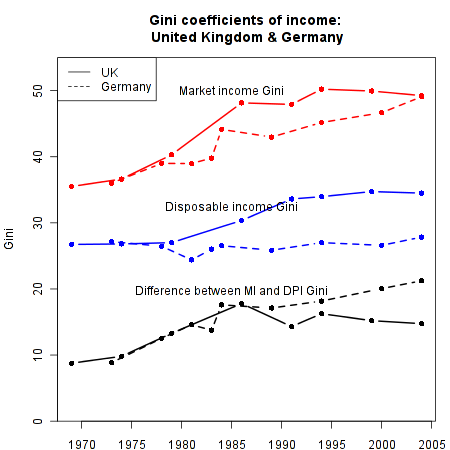Michael Lewis's [new article](http://www.vanityfair.com/business/features/2011/09/europe-201109) about Germany is getting some play (although Kevin Drum [hates it](http://motherjones.com/kevin-drum/2011/08/michael-lewiss-lazy-take-germany)), so I figured this was a good time to dust off and extend some notes I wrote after I read Lewis's *The Big Short*. After some general reflections about the financial crisis, I deal specifically with the Germans at the end.
*The Big Short* tells the story of the financial crisis by following a few individuals who saw it coming early and placed bets against the edifice of home mortgage-based structured finance. This personalization has clear storytelling benefits, but it tends to occlude the structural basis of the entire system; nonetheless, it's possible to back out a more interesting institutional story from the book.
Throughout the book there is an implicit tension between two ways of seeing the crisis. This tension turns on the distinction between idiots and crooks--or to put it another way, between rationality and madness. One popular interpretation of the crisis, and of Lewis's book, is that the explosion of sub-prime lending and securitization was the result of mass stupidity, and that huge numbers of people simply failed to understand or account for the incredible financial risks they were taking. This is basically [the approach Ezra Klein takes](http://voices.washingtonpost.com/ezra-klein/2010/04/michael_lewis_and_the_idiots.html) when he quotes Larry Summers' famous remark that "there are idiots" and concludes that the crisis was a consequence of human weakness and error in the context of a system with few regulatory restraints. He reiterated this claim later, in a post [criticizing](http://www.washingtonpost.com/blogs/ezra-klein/post/what-inside-job-got-wrong/2011/05/19/AGgGoJgH_blog.html) the documentary *Inside Job*.
Yet idiocy does not stand up as a the central causal factor behind the crisis. For one thing, it seems odd that there would be such a concentration of idiocy in the most lucrative field of the American economy, one which has been leeching the brightest minds out of the rest of the society for decades. Moreover, it is necessary to explain not only the preponderance of idiots, but the tendency for their idiocy to work systematically *in the same direction.* At one point in Lewis's book, Greg Lippmann, the Deutsche Bank trader who made millions short-selling subprime mortgage debt, refers to the market as a "tug of war", with him and the other short sellers pulling against all those who were promoting and buying mortgage-based financial instruments. Yet up until fairly late in the game, almost everyone was pulling in one direction, to the extent that Lippmann and others actually had to call new financial instruments into existence in order to short the market after 2005. This is not what we would expect from people who were just being stupid. In academic finance, the technical term for idiots is "noise traders", and they are thought to provide erratic and irrational actions that may destabilize markets but do not systematically move them in one particular direction.
As it turns out, the story Michael Lewis actually tells is about something much worse than idiots. The two most significant lines in the book are this one:
> If you wanted to predict how people would behave, [Warren Buffet's partner Charlie] Munger said, you only had to look at their incentives.
And this one:
> What's strange and complicated about it, however, is that pretty much all the important people on both sides of the gamble [on subprime mortgages] left the table rich.
This last point bears reiterating, as it's what makes the story Lewis tells so infuriating. Though the financial crisis produced a great deal of institutional calamity--the disappearance of Bear Stearns, Lehman, and many smaller banks and investment houses--the individual people responsible for the worst decisions of the last decade managed to greatly enrich themselves even as they nearly annihilated the global economy. No doubt, some of them could have made even more money had they been more astute about the system they were building. And it's undeniable that some of them, particularly toward the end, were getting high on their own supply, taking the the bogus triple-A ratings on toxic subprime garbage at face value even though they had an inside understanding of the con game they represented. But ultimately, these people--who in a just world would be penniless and serving extended prison terms--walked away with millions of dollars. There are plenty of apt descriptions for people like that, but "idiots" isn't the one I would choose.
Much of the dramatic action in *The Big Short* turns on some variant of the old gambler's adage that if you don't know who the fool at the table is, it's you. His protagonists spend page after page desperately trying to find the fool in the financial markets, lest it be them. And yet reading between the lines, we can see why they had such trouble: the fool was not at the table. The fool was all of the *rest* of us: it was the taxpayer, and the U.S. government, which ultimately took responsibility for picking up the pieces and stabilizing the financial system after its cataclysmic meltdown. We've come to accept that the high ratings given to subprime mortgage bonds were a fiction or a fraud, but in a sense they were accurate: their risk had been implicitly moved elsewhere, to the government. The key participants in the events of Lewis's book were never in any great danger of not getting rich, and hence it could be argued that they correctly perceived their risk and that they successfully followed their incentives.
Nevertheless, there are some particular cases of idiocy that are interesting in their own right. One particularly important one concerns a recurring customer who became very important to the subprime market: German institutional investors, or as they are called at one point, simply "Dusseldorf". Lewis never really tries to explain their outsized appetite for murky subprime instruments. But if you know something about how German capitalism works, and how it differs from its Anglo-American counterpart, then passages like this make perfect sense:
> By early 2005 Howie Hubler had found a sufficient number of fools in the market to acquire 2 billion dollars' worth of these bespoke credit default swaps. From the point of view of the fools, the credit default swaps Howie Hubler was looking to buy must have looked like free money: Morgan Stanley would pay them 2.5 percent a year over the risk-free rate to own, in effect, investment-grade (triple-B-rate) asset-backed bonds. The idea appealed especially to German institutional investors, who either failed to read the fine print or took the ratings at face value.
In the language of the ["varieties of capitalism"](http://kisi.deu.edu.tr/muge.tunaer/VoC.pdf) school of comparative political economy, Germany is what is known as a "coordinated market economy" or CME, whereas the U.S. is a "liberal market economy" or LME. The structure of the market in a CME is fundamentally different in that it relies heavily on coordination between firms, based on tight long-term inter-linkages and above all, trust. This contrasts with the more ruthlessly competitive ethic of the LME, in which formal contracts take the place of reciprocal trust relations. As Peter Hall says in the linked essay:
> In coordinated market economies, firms depend more heavily on non-market relationships to coordinate their endeavors with other actors and to construct their core competencies. These non-market modes of coordination generally entail more extensive relational or incomplete contracting, network monitoring based on the exchange of private information inside networks, and more reliance on collaborative, as opposed to competitive, relationships to build the competencies of the firm. In contrast to liberal market economies (LMEs), where the equilibrium outcomes of firm behavior are usually given by demand and supply conditions in competitive markets, the equilibria on which firms coordinate in coordinated market economies (CMEs) are more often the result of strategic interaction among firms and other actors.
Both "failing to read the fine print" and "taking the ratings at face value" are therefore more defensible positions in a CME, event at the level of a purely pecuniary economic logic: deceiving one's counterparty would be counterproductive, since the cost of the long-run damages to one's trustworthiness and relations to other firms would outweigh any short-term financial benefit. Needless to say, that's not how things work in the United States; perhaps the best advice to the Germans in future negotiations is that when you're dealing with Americans, you should always read the contract carefully!
What's more, German banks were latecomers to the high-flying finance game. Says [Richard Deeg](www.temple.edu/polsci/deeg/documents/DeegGermanPolart.pdf):
> The reform and transformation of the German financial and corporate governance systems goes back to the mid-1980s when the large German banks launched a concerted effort to promote Germany's 'underdeveloped' securities markets. This effort accorded with the beginnings of a major reorientation in the banks' business strategies from a traditional focus on commercial banking to a focus on securities market-oriented investment banking. During the 1990s many large non-financial firms also became reform supporters because they, no longer relying on bank loans for external funds, instead preferred to see the introduction of modern capital market products in Germany that could increase their financial flexibility. Because German investors could not be expected to increase their demand for securities as rapidly as the banks needed, the strategy came to rest importantly upon wooing foreign institutional investors. The reform coalition thus found itself increasingly compelled to adopt many of the Anglo-Saxon market regulations and norms demanded by these investors.
So German bankers and investors were a) relative novices at modern securities wizardry; b) steeped in a capitalist culture quite different from the dog-eat-dog rapacity of the American version. Lewis hints at these explanations in places in his recent essay on Germany. Here's something about the Germans as latecomers:
> Everyone thought that German bankers were more conservative, and more isolated from the outside world, than, say, the French. And it wasn’t true. "There had never been any innovation in German banking," says Enderlein. "You gave money to some company, and the company paid you back. They went [virtually overnight] from this to being American. And they weren’t any good at it."
And there's this bit about a banker projecting his CME norms onto Americans:
> In the bargain, he tells me why the current financial crisis has left so unsettled the German banker's view of the financial universe. In the early 1970s, after he started at Commerzbank, the bank opened the first New York branch of any German bank, and he went to work in it. He mists up a bit when he tells stories about the Americans he did business with back then: __in one story an American investment banker who had inadvertently shut him out of a deal hunts him down and hands him an envelope with 75 grand in it, because he hadn't meant for the German bank to get stiffed.__ "You have to understand," he says emphatically, "this is where I get my view of Americans." In the past few years, he adds, that view has changed.
> "How much did you lose?" I ask.
> "I don't want to tell you," he says.
> He laughs and then continues. "For 40 years we didn't lose a penny on anything with a triple-A rating," he says. "We stopped building the portfolio in subprime in 2006. I had the idea that there was something wrong with your market." He pauses. __"I was in the belief that the best supervised of all banking systems was in New York.__ To me the Fed and the S.E.C. were second to none. I did not believe that there would be e-mail traffic between investment bankers saying that they were selling … " He pauses and decides he shouldn't say "shit." "Dirt," he says instead. "This is by far my biggest professional disappointment. I was in a much too positive way U.S.-biased. __I had a set of beliefs about U.S. values."__
What Lewis doesn't seem to get is that this trusting attitude isn't just some ineffable quality of Germanness. It's built into the structure of German political economy. And I think that's a better explanation of what happened in Germany than Lewis' appeal to national stereotypes.






